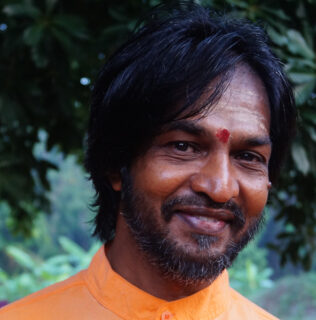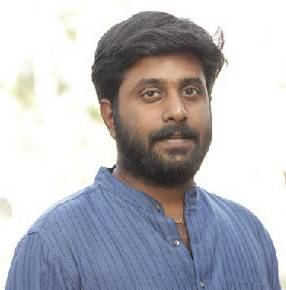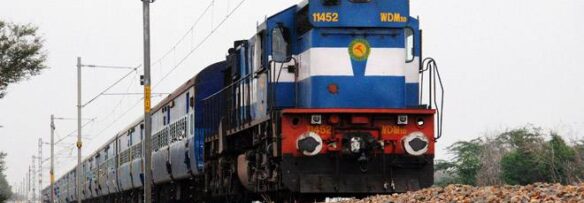Teachers training course curriculum
Techniques Training/Practice -125 Hours
Includes asanas, pranayamas (breathing techniques), kriyas (detoxing/cleansing techniques), mudras (symbolic gesures), bandhas (energy locks), meditation, chanting mantras (optional) and basic Sanskrit. These hours are a mix between (1) analytical training in how to teach and practice the techniques, and (2) guided practice of the techniques.
Teaching Methodology — 25 Hours
Includes principles of demonstration, observation, assisting / correcting, instruction, teaching styles, qualities of a teacher, help with setting up your own yoga classes.
Yoga Anatomy & Ayurveda — 20 Hours
Includes both human physical anatomy and physiology (bodily systems, organs, etc.) and anatomy of the pranic body: chakras, nadis, etc. Includes both the study of the subject and application of its principles to yoga practice (benefits, contraindications, healthy movement patterns, etc).
Ayurveda
The origin of Ayurveda, the most ancient form of medical science could be traced back to the Vedic literature. The crucial difference between Ayurveda and modern medical science is that Ayurveda is not just physical treatment, it takes a human being as whole that is body, mind and soul. The Sanskrit word 'Ayurveda' means the knowledge of life, ayur meaning life and veda meaning science.
It is the art of healthy living that enables you to find a perfect harmony between your body and mind. Whereas modern medical science treats only the infected part, Ayurveda treats body as a whole. Along with curing ailments, Ayurveda gives equal importance to preventative measures too. We can arrange ayurvedic massage and pancharkarma (detoxing and regenerating the body and treating ailments) for students who are interested in staying on after the course.
Philosophy, Lifestyle & Ethics — 45 Hours
Includes the study of yoga sutras, historical evolution of yoga, living a yogic lifestyle in a materialistic society and ethics for yoga teachers. Basic Sanskrit and mantra translation classes will be offered.
Practicum — 20 Hours
Includes teaching practice, observing others teaching and receiving/giving feedback.
Extra curricular activities
For teacher training courses in Kerala, there is the opportunity to do the following activities in your free time or on days off
- A backwater trip.
- Temple and ashram visits.
- Ayurvedic massage and herbal steam baths.
Visit to Kanyakumari (the holy place were the 3 oceans meeting together), Vivekanandha Rock memorial, Maruthwamala ( Sree Narayana Guru where Meditate in the Cave.) and Takkala Palace.
Other Facilities
Laundry Service
Washing Machine is available for students during Yoga Teachers Training Course.
Visas
Check whether you are required to arrange a visa before you enter India. Be careful to apply for a tourist visa, whilst you will be studying yoga here, a student visa is a very different visa and you will require supporting information which only academic establishments like universities can provide. Your reason for visiting should be stated as a tourist. Foreign Nationals are required to bring their original passport with a valid visa for India.
Telephone/email
Email and telephone facilities are available. However, the facilities are limited so guests must keep email and telephone communications to a minimum, to allow all guests equal access. Mobile phone signals from all major companies are available in the resort compound. Use of mobile phones in all classes, dining areas and also inside the rooms are prohibited due to the respect to other's privacy.
Certification & Assessments
The students are continuously assessed throughout the course at all levels. There will be a practical observation session towards the end of the course to evaluate the understanding and skills of the students.
Students must have your full-time attendance in the yoga, Meditation and Philosophy classes, and if the attendance is less, no certificate will be issued.
Daily Schedule
This timetable is subject to change as per weather conditions.Classes are held on 6 days a week and 7th day is for optional Trips to Cultural and spiritual places.
An authentic team to nurture the teacher in you

BHOOMAJI
School Director, Main Teacher & Yoga Alliance E-RYT - 500
- 20 years experience in Yoga since 1988
- Yoga Teachers’ Training Course and Advanced Teachers’ Training Course from Sivananda Tradition
- Intense practice in Gangotri for 5 months
- Siddha Vaidyam and Marma Vaidyam from Rajkumar Aashan, Marthandam -Kanyakumari, Tamil Nadu India
Registered expert Yoga teacher with Yoga Alliance

P.S PARAMESWARAN
Hatha Yoga teacher
- Over 15+ years teaching experience
- Yoga Teacher Training Course, Advanced Yoga Teacher Training Course - Sivananda Yoga Vedanata Ashram
- Yoga teacher in Engineering college, Chengannur, N. S. S. Ayurvedic Hospitals, Valamkulam and Aranmula
- Worked in Ayurveda Yoga Villa,Wayanad, Sarai Resort, Leh, Ladakh

SWAMI YOGESHANANDA
Philosophy & Sanskrit Scholar
- Disciple of Dayananda Saraswati
- Sanskrit and traditional scriptures from Arsha Vidya Gurukulam, Rishikesh and Tamil Nadu
- Initiated into monkhood in 1998 by Dayananda Saraswati
- Teaching Sanskrit, Vedantic Scriptures and Bhagavad Gita in India and Sri Lanka

Dr. NIMIN SREEDHAR
Ayurveda and Anatomy
- In the Ayurvedic treatment field for over a decade
- Ex-Executive Director of the medical Magazine ‘Vaidyam’
- Book on Ayurvedic diet and recipes - ‘Mahānasaṃ- Culinary delights of Rajah Ayurveda’
- Ex-faculty at Mayur University, London, Kerala Ayurveda Academy, USA and Arsha Yoga Gurukulam
- Head of Literary Research of Ekavaidya Knowledge Services Private Limited

Who can Participate?
We embrace diversity and welcome serious yoga students of all ages and walks of life. We have taught students in their late teens and sixties. We expect you to have a regular yoga practice (and preferably a simple pranayama practice) and a willingness to respect and recognize the power of yoga to transform your outlook on life and its ability to steady the mind and body. Above all, we ask you to trust yourself and open your heart and mind to the opportunities that are presented to you. Smoking is strictly prohibited.
Course Donation (Fees):
Twin share room : 1750 Euro - Course fee 1000 Euro, 750 Euro for food and accommodation
Dormitory room : 1550 Euro - course fee 1000 Euro and 550 Euro for food and accommodation (only for ladies )
This donation includes books, kriya materials, accommodation and food
Deposit:
A non-refundable deposit of 300 EUR is required to finalize a booking with us. If you cannot attend the course for any reason, you can transfer the deposit to any other course within one year from the original course starting date subject to availability. If you cancel the course at the last moment, and if we cannot find a replacement, you will lose the deposit.
Balance Payments:
The balance payment can be paid on arrival in cash, in any major currency or, if you are coming with your debit/Credit card, you can get Indian Rupees in cash from the local ATMs or currency exchange agents - in that case, please check with your bank for the transaction charges with credit cards.For payments in Indian Rupees or any other currencies, we use the current exchange rates from www.xe.com at the time of your payment. Applicants who are remitting their full course fee online should pay an additional charge of 60 EUR as Transaction charge.
FAQ
Which Style of Yoga?
Our courses involve the practice of traditional hatha yoga consisting of sun salutations, headstand, shoulderstand, plough, bridge, fish, sitting forward bend, inclined plane, cobra, locust, backward bends, spinal twists, standing forward bends, standing sideways bends and balancing poses, savasana, kapalabhati, pranayama and meditation.
Do I need an Indian Visa?
Yes, an Indian Visa is necessary for all foreigners to enter India. (Most of the country can apply indian e visa) Please google for details of your local Indian Embassy website and find out how many days it takes to get an Indian Tourist Visa. Sending your passport to the embassy or a visa consultant by post could take a week or two. In some countries, you can go to the visa centre in person and get the Visa on the same day. A 'Tourist Visa' is easy to get, inexpensive and does not need much paper work. While filling in the Tourist Visa application, please write the reason of travel as 'Vacation'.
Holistic Centre for Yoga & Vedanta, Kunnumpara, Kovalam
Kunnumpara is;
13 KM from Trivandrum International Airport
10 KM from Trivandrum Central Railway Station
Address
Kunnumpara Temple & Mutt
Pachalloor P.O. , Vazhamuttam, Trivandrum, Kerala State, India 695 027
How to Reach
Those ashram guests who wish to be picked up by a taxi from the nearby airport / railway station / Bus station please email: yogaindiameditation@gmail.com giving all the arrival details. This is highly recommended as the taxi driver from Kovalam knows where exactly to bring you.

By Air
The nearest international airport is in Trivandrum. One can travel by bus or taxi to the ashram location. Kunnumpara Ashram is 13 KM from Trivandrum airport.

The closest railway stations to the Kunnumparaashram is the Trivandrum. Kunnumpara is 13 KM from the Trivandrum station. Check with the South Indian railways for more details : www.indianrail.gov.in From these railway stations take a taxi or bus to the ashram.Ashram guests who wants to arrive by train are advised to book rail tickets as early as possible. Trains are often fully booked. Train e-tickets can be booked up to three months in advance via the internet. Train information can be obtained via www.indianrail.gov.in . Train journey reservation is possible by using credit card, for bookings : www.irctc.co.in


